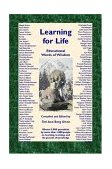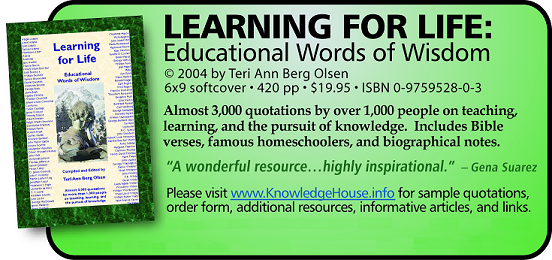

 Noah Webster Noah Webster, a descendent of Pilgrim Governor William Bradford, was born into a colonial American family on October 16, 1758. Noah grew up on a farm in West Hartford, Connecticut. Noah and his two brothers, Charles and Abraham, helped their father with the farm chores. Noah's mother and two sisters, Mercy and Jerusha, took care of the household duties such as making food and clothing. While Webster’s adult life was documented in his diary, not much is known about his childhood. However, it is very likely that Noah Webster had little formal schooling and was largely self-educated. He would have attended school for only a few months out of the year (from December to March) when his labor wasn’t required on the farm. In fact, the majority of education in early America was done by the parents, church, tutors, and apprenticeships. Such training produced in our Founding Fathers the greatest group of men in character and reasoning of all time. Noah Webster was a contemporary of George Washington, Benjamin Franklin, John Adams, James Madison, and Alexander Hamilton – all of whom were self-educated. At the time of the Revolution, the literacy level in America was the highest that it’s ever been – virtually 100%! John Adams said that to find someone who could not read was as rare as finding a comet. And yet by the end of the American Revolution, many towns still had no public schools and few people went to college. Those students who did go to college were instructed by tutors – most often ministers – and we do know that Noah Webster’s parents hired a tutor so that he could enter Yale College at age 16. After he graduated in 1778, Noah wanted to study law (at the first law school in America) but he could not afford it. By this time more schoolhouses were being built, so Noah became a teacher to support his own studies. He did not like the American common (public) schools, however, saying: “The general institution of schools in this country is full proof that ...people never misapply their economy so much, as when they make a provision for the education of children.” Nevertheless, Webster did what he could to improve the schools. He wrote several textbooks to replace the British books that were still being used after America had won its independence. The most successful of these was Webster’s Spelling Book, known as the “Blue-Backed Speller,” which remained popular through the latter part of the 19th century. Even Ben Franklin used Noah's book to teach his granddaughter how to read, spell, and pronounce words. Unauthorized printing of his books and a desire to protect his works led Webster to lobby for a federal copyright law that was successfully passed in 1790. Thus, in addition to being called the "Father of American Christian Education," he is also known as "the father of copyright legislation in America." Besides writing textbooks, Webster practiced law for several years, served in local politics, played an influential role in shaping the U.S. Constitution, worked as a newspaper and magazine editor, led scientific inquiries to combat infectious diseases, and lobbied to abolish slavery. Webster married Rebecca Greenleaf and they eventually had eight children. However, Webster’s most well-known achievement would be the first American dictionary of the English language. Webster’s endeavor comprised decades of comprehensive research which included learning several languages and traveling to the national libraries of France and Britain. An American Dictionary of the English Language was published in 1828 after taking more than twenty-seven years to complete. Webster’s dictionary established standards of spelling and pronunciation in the United States while also incorporating American Indian words. Webster believed that if the new nation was to survive, its people had to have a common language and set of moral values. He was a Christian who defined each word according to its meanings and usage in the Bible. Webster’s definition of “education” is: “to bring up, as a child; to instruct; to inform and enlighten the understanding; to instill into the mind principles of arts, science, morals, religion and behavior. To educate children well is one of the most important duties of parents and guardians.” Interestingly, Webster’s definition of education does not mention anything about school! Noah Webster is quoted as saying "Education is useless without the Bible." As if writing the dictionary wasn’t enough, he also published his own edition of the Christian Bible in 1833. Though an excellent and highly accurate translation, Webster’s Bible was not widely accepted due to the continued popularity of the King James version. It was, however, was the most significant English language translation of the scriptures to be done since the King James version of more than 200 years earlier. An American Renaissance man, Webster was curious and knowledgeable in a variety of fields from law to medicine to religion to lexicography. Webster spent his life educating himself while also delighting in his children, hearth and home. Noah Webster died in 1843 at the age of 85. Although perhaps not as famous as some of the other Founding Fathers, Noah Webster can be considered a true American hero. Did You Know…? “The Noah Plan” (www.face.net) is a homeschool curriculum based on Noah Webster's works, the constitutional republic form of government, and writings of the Founding Fathers. The Principle Approach focuses on America's Christian history while applying Biblical principles in scholarship, reasoning, character, and the art of self-government. www.homeschooltoday.com/articles/articles/legacy_of_noah_webster.php - The Enduring Legacy of Noah Webster, by Dennis L. Peterson. http://1828.mshaffer.com/ - Look up a word in Noah Webster’s 1828 Dictionary online for free. www.christiantech.com - Purchase a searchable copy of Noah Webster’s 1828 Dictionary and additional resources on CD. www.greatsite.com/timeline-english-bible-history/noah-webster.html - Noah Webster’s Bible. www.biblesway.com/versions/webster_bible - Online Webster Bible Searchable by verse and keywords. www.noahwebsterhouse.org - Noah Webster House Museum information. SEE ALSO: www.knowledgehouse.info/webster.html - Definitions With Meaning.
Contact: . Thanks! Please click here for reprint permission.


These pages are a continuous work in progress.
|
Help Support this Site
and purchase items via our affiliate links. Thank you!
 
Thank you for visiting my |

